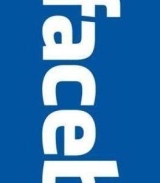 Technology
Technology

Google chief: My fears for Generation Facebook
 (The Independent): Eric Schmidt, the chief executive of Google, has issued a stark warning over the amount of personal data people leave on the internet and suggested that many of them will be forced one day to change their names in order to escape their cyber past. In a startling admission from a man whose company has made billions by perfecting the art of hoarding, storing and retrieving information on us, Mr Schmidt suggested that the enormous quantity of detail we leave online may not be such a good thing after all. He said that young people will need to go as far as changing their identities if they are to truly erase what they have left online.
(The Independent): Eric Schmidt, the chief executive of Google, has issued a stark warning over the amount of personal data people leave on the internet and suggested that many of them will be forced one day to change their names in order to escape their cyber past. In a startling admission from a man whose company has made billions by perfecting the art of hoarding, storing and retrieving information on us, Mr Schmidt suggested that the enormous quantity of detail we leave online may not be such a good thing after all. He said that young people will need to go as far as changing their identities if they are to truly erase what they have left online.

iPhone owners get more sex than Blackberry users
(LA News): Does the smartphone you carry help you attract women? The answer is yes. According to research from dating site OKCupid.com, the iPhone users are having more sex than those who use BlackBerrys or Android phones. OKCupid polled 9,785 people with smartphones, and the surveyed showed that men with iPhones had an average of 10 sexual partners by age 30. Those with BlackBerrys came second with 8.1 partners, while Android-based smartphones owners get 6 partners. Among the women, iPhone owners had 12.3 partners. It is 8.8 partners for BlackBerry users and 6.1 for Android users. The results were part of an investigation started by OKCupid to know that what types of photographs got the most positive results on the website.

Net neutrality talks stall in US
 (BBC): US regulators have halted closed-door meetings intended to find a way to make sure all web data is treated equally. The Federal Communications Commission began the meetings after a court limited its net regulation powers. The FCC faced criticism over the meetings by groups that supported the principle known as net neutrality. The FCC decision follows reports that Google and Verizon hatched a separate deal to allow faster speeds for web sites that pay for the privilege. "Any outcome, any deal that doesn’t preserve the freedom and openness of the internet for consumers and entrepreneurs will be unacceptable," said FCC chair Julius Genachowski.
(BBC): US regulators have halted closed-door meetings intended to find a way to make sure all web data is treated equally. The Federal Communications Commission began the meetings after a court limited its net regulation powers. The FCC faced criticism over the meetings by groups that supported the principle known as net neutrality. The FCC decision follows reports that Google and Verizon hatched a separate deal to allow faster speeds for web sites that pay for the privilege. "Any outcome, any deal that doesn’t preserve the freedom and openness of the internet for consumers and entrepreneurs will be unacceptable," said FCC chair Julius Genachowski.

Ofcom calls for clarity in broadband speed ads
 (BBC): Britons are not getting the broadband services they are being sold, research by the regulator Ofcom suggests. Its analysis of broadband speeds in the UK shows that, for some services, 97% of consumers do not get the advertised speed. It also shows a growing gap between the claims ISPs make for broadband and the speed being delivered. To fix the problem, Ofcom is revamping the code of conduct for ISPs and asking for changes to how broadband is sold. The regulator’s survey shows that the average residential broadband speed in the UK has risen in the last 12 months from 4.1Megabits per second (Mbps) to 5.2Mbps. The report also reveals the changing nature of UK broadband.
(BBC): Britons are not getting the broadband services they are being sold, research by the regulator Ofcom suggests. Its analysis of broadband speeds in the UK shows that, for some services, 97% of consumers do not get the advertised speed. It also shows a growing gap between the claims ISPs make for broadband and the speed being delivered. To fix the problem, Ofcom is revamping the code of conduct for ISPs and asking for changes to how broadband is sold. The regulator’s survey shows that the average residential broadband speed in the UK has risen in the last 12 months from 4.1Megabits per second (Mbps) to 5.2Mbps. The report also reveals the changing nature of UK broadband.

Facebook launches safety page
 (AFP): The Social Networking site Facebook has launched a Web page devoted to staying safe on the Internet. The "Safety Page" will highlight news and initiatives focused on ways people can keep data secure at the world’s leading online social-networking community, Joe Sullivan of Facebook said in a blog post.The new page was intended to augment a virtual Safety Center that Facebook introduced in April and was based on a "security page" that boasted more than 2.2 million "fans" as of Monday."Online safety is a shared responsibility," Sullivan said. "We’ll continue to think of innovative ways to promote safety on our service and elsewhere on the Web."
(AFP): The Social Networking site Facebook has launched a Web page devoted to staying safe on the Internet. The "Safety Page" will highlight news and initiatives focused on ways people can keep data secure at the world’s leading online social-networking community, Joe Sullivan of Facebook said in a blog post.The new page was intended to augment a virtual Safety Center that Facebook introduced in April and was based on a "security page" that boasted more than 2.2 million "fans" as of Monday."Online safety is a shared responsibility," Sullivan said. "We’ll continue to think of innovative ways to promote safety on our service and elsewhere on the Web."

ICTA upholds net neutrality
 (CNS): The use of technology that would give internet service providers (ISPs) the ability of to manage internet traffic, by accelerating or “throttling” particular protocols or applications, has been denied. A public consultation on the use of Deep Packet Inspection (DPI) and similar technologies, which began in July 2009 ended with the Information and Communications Technology Authority (ICTA) determining that the current use of this technology by two ISPs – Digicel and WestTel’s – was in breach of their ICT licences. Similarly, the ICTA found that LIME would also be in breach of its license if it implemented its planned use of DPI.
(CNS): The use of technology that would give internet service providers (ISPs) the ability of to manage internet traffic, by accelerating or “throttling” particular protocols or applications, has been denied. A public consultation on the use of Deep Packet Inspection (DPI) and similar technologies, which began in July 2009 ended with the Information and Communications Technology Authority (ICTA) determining that the current use of this technology by two ISPs – Digicel and WestTel’s – was in breach of their ICT licences. Similarly, the ICTA found that LIME would also be in breach of its license if it implemented its planned use of DPI.
The authority also recommends that changes be made to the ICTA Law in order to significantly restrict the use of DPI in the Cayman Islands.
The ICTA said it had two primary concerns with respect to DPI – privacy and net neutrality. Regarding the former, the authority said, “Not only does DPI permit the examination of packet headers, including source and destination IP addresses (which, in some instances, may also be considered personal information), but allows an ISP to examine the content of an electronic communication. The Authority is not convinced that examination of content is essential for traffic management (or any of the other purposes listed above) and views this practice as an unreasonable invasion of an individual’s privacy.”
Commenting on the threat to net neutrality, the ICTA said that in order to promote online innovation, it is crucial that the Internet remain “neutral. The authority said did not support ISPs granting exclusive or preferential access (higher bandwidth levels) to certain providers or applications selected by the ISP. “The Authority considers that the use of DPI should not be permitted in the Cayman Islands if it undermines net neutrality principles, either directly or indirectly.”
Law firm Appleby submitted that the intent of the ICTA Law is to treat the transmission of data over the Internet in a similar manner as the sending of traditional letters, “No-one would seriously suggest that the Cayman Islands Post Office should open letters and treat them differently according to the type of correspondence they contain. We believethat if DPI had been available at the time the Law was passed, the legislature would not have permitted its use.”
Appleby further noted: “We have serious concerns as to the effect the use of DPI would have on the confidentiality of communications sent to and from Cayman, and the level of trust that clients feel able to place in the integrity of the system. It is notable in this regard that, as far as we are aware no other offshore financial centre deploys DPI. Doing so would therefore risk imposing on Cayman a significant competitive disadvantage.”
In its submission Walkers noted that with the use of DPI, ISPs could attempt to give priority to traffic from specific subscribers based on their type. “This could provide an unfair advantage to certain ISPs and their subscribers over others that do not use DPI or similar technologies. If ISPs begin giving priority to specific types of traffic, this could cause application developers to begin camouflaging their traffic as other types of traffic in order to receive higher priority. In the long-run, this would make DPI less effective.”
LIME maintained that DPI would allow the enforcement of agreements with customerswith respect to download speeds and usage. The telecommunications firm also said it could get a better understanding of the IP traffic profile of its Internet and backbone, make more effective routing of traffic on its Internet network, assist in the development of customized services and billing, and protect the network and the service quality offered from exposure to security threats.
Digicel said that DPI enables an ISP to monitor network traffic usage in real time to meet the ever increasing risk to the services provided. The firm said the value to the provider and the subscriber in prevention of fraudulent attacks on both justifies the use of DPI as a precondition to the provision of the service, though it did acknowledged that DPI can be used to carry out intentional interception of messages sent by a subscriber, but claimed it does not use DPI for these purposes.
WestTel confirmed that it employs equipment to manage its traffic loads efficiently and ensure that the majority of its customers experience expected bandwidth. WestTel noted that the bandwidth allocated to Peer-to-Peer (”P2P”) usage for residential customers is limited to 4 to 12 KB/s upstream and 8 to 150 KB/s downstream. Among corporate customers, this equipment is only used upon request if a corporate customer wishes to manage its internal traffic in a more efficient manner.
All documentation and submissions regarding this public consultation are posted on the ICTA website.

Young women increasingly addicted to Facebook
 (The Telegraph): One third of women aged 18 to 34 check Facebook when they first wake up, before even going to the toilet, according to new research. Young women are becoming increasingly addicted and dependent upon social networks according to the study. 21% of women aged between 18 to 34 check Facebook in the middle of the night, while 42% of the same group think it is fine to post drunken photos of themselves onto the social network. 79%are also happy to be seen kissing in photographs posted on Facebook. 58% of those polled use Facebook to track their ‘frenemies’ (people they are ‘friends’ on the site but do not like in real life).
(The Telegraph): One third of women aged 18 to 34 check Facebook when they first wake up, before even going to the toilet, according to new research. Young women are becoming increasingly addicted and dependent upon social networks according to the study. 21% of women aged between 18 to 34 check Facebook in the middle of the night, while 42% of the same group think it is fine to post drunken photos of themselves onto the social network. 79%are also happy to be seen kissing in photographs posted on Facebook. 58% of those polled use Facebook to track their ‘frenemies’ (people they are ‘friends’ on the site but do not like in real life).
Former F1 engineer unveils new city car
(CNN): His most famous car has a top speed of 240 miles per hour. With a top speed of 80 mph, Gordon Murray’s latest design isn’t likely to trouble too many speed cameras, but it shouldn’t worry environmentalists either. The former Formula One engineer who created the iconic McLaren F1 supercar has officially unveiled the T.25 — his idea for a new class of city car. At less than eight feet long and a little over four feet wide, the T.25 is smaller than Daimler AG’s popular Smart car, and a petrol engine model will retail for around $9,000. The price tag isn’t exactly Formula One, but the technology employed to create the T.25 certainly is.

Access to country’s laws enters 21st century
 (CNS): GIS Marketing and Communications (GIS) has launched a Cayman Islands Gazette website that it says simplifies and modernizes access to the official government publication. The government department said the new site is practical and user friendly. The GIS boss Angela Piercy said not only did the site break new ground this first phase was completed ahead of schedule. The site it’s expected to provide the Cayman public with direct access to all the country’s new bills and laws once they are gazetted.
(CNS): GIS Marketing and Communications (GIS) has launched a Cayman Islands Gazette website that it says simplifies and modernizes access to the official government publication. The government department said the new site is practical and user friendly. The GIS boss Angela Piercy said not only did the site break new ground this first phase was completed ahead of schedule. The site it’s expected to provide the Cayman public with direct access to all the country’s new bills and laws once they are gazetted.
US pirate hunters target movies
(BBC): An organisation set up in the US to track down and punish illegal file-sharers is coming under increasing scrutiny from civil liberty groups. The US Copyright Group (USCG) has been working on behalf of a range of movie makers, most notably those behind box office hit The Hurt Locker. It has pledged to target 150,000 illegal downloaders in coming months. But civil rights groups have questioned its motives. On its website USCG offers to help film industry leaders, producers and copyright owners to recover losses due to illegal downloading. It promises to assist with halting copyright infringement which is a huge problem for the movie industry.